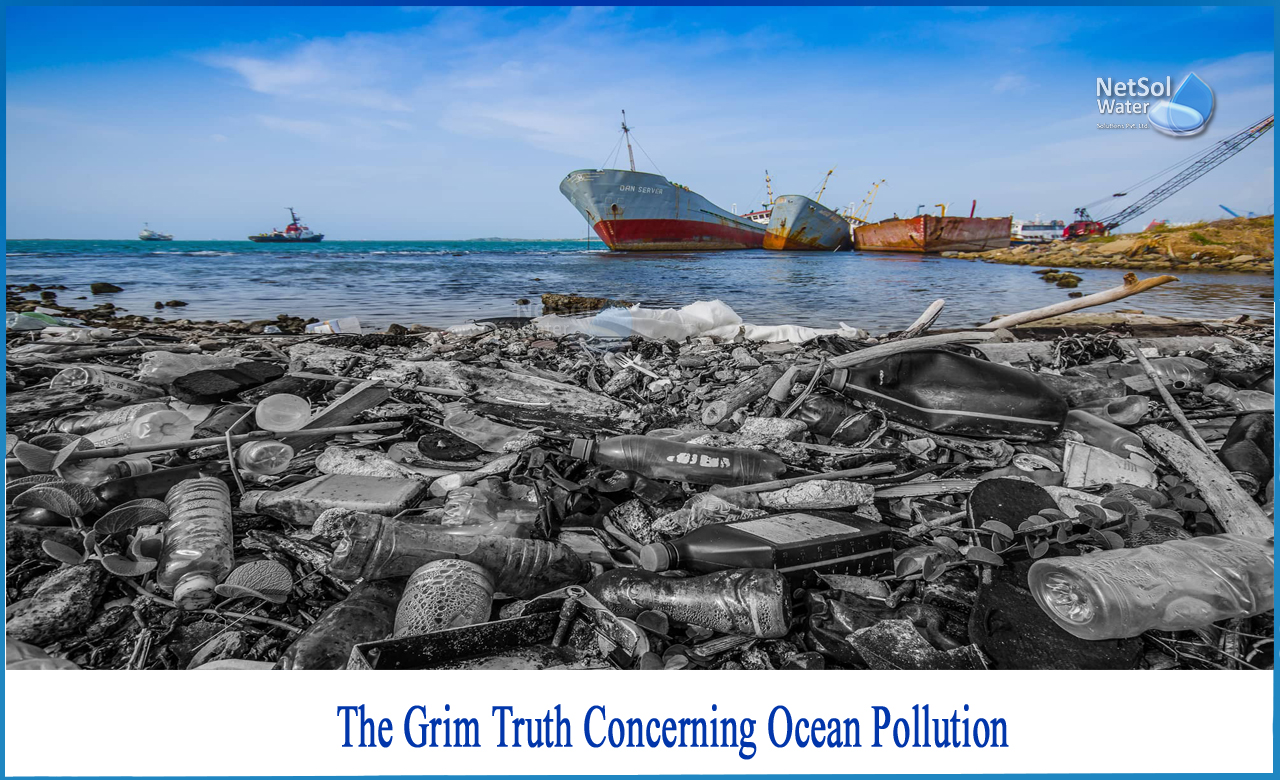What are the facts about ocean pollution?
Oceans, which cover more than 70% of our world, are among the most precious natural resources on the planet. They control the weather, clean the air, contribute to global food production, and provide a living for millions. They also support the majority of life on Earth, from microscopic algae to the world's biggest mammal, the blue whale.
Despite this, we are polluting them. Because of their very nature—all streams flow to rivers, and all rivers travel to the sea—the seas are the final destination for so much of the pollution we make on land, no matter how far away we are from the coasts.Human-caused Ocean pollution ranges from harmful carbon emissions to suffocating plastic to gushing oil to incessant noise. As a result, our cumulative effect on the seas is rapidly deteriorating their health.
The Sad Truth About Ocean Pollution
1: Acidification of the Oceans
When we use fossil fuels, we damage not just the air but also the oceans. Indeed, today's seas absorb up to a quarter of all man-made carbon emissions, altering the pH of surface waters and contributing to acidification. This situation is progressively deteriorating—oceans are acidifying quicker than they have in 300 million years.It is anticipated that if present emissions trends continue, the ocean's surface waters would be almost 150 percent more acidic than they are currently by the end of the century.
Marine ecosystems, as well as the coastal economies that rely on them, are out of balance. Take, for example, reefs and shellfish. Mussels, clams, coral, and oysters require calcium carbonate to construct their shells and skeletons. However, when acidity levels rise, the carbonate levels in the ocean decrease, jeopardizing the existence of these organisms. Because bivalves are at the bottom of the food chain, the consequences affect numerous fish, seabirds, and marine mammals.More acidic waters also lead to coral reef bleaching and make it more difficult for certain fish to detect predators and others to pursue prey.
2: Trash in the Water
Plastic makes up the vast bulk of the rubbish that enters the ocean each year, and it is here to stay. Because, unlike other waste, single-use shopping bags, water bottles, drinking straws, and yogurt containers, among the eight million metric tons of plastic products we throw away instead of recycling, do not biodegrade. Instead, they can live in the ecosystem for millennia, fouling our beaches, entangling marine life, and being consumed by fish and seabirds.
Where does all of this garbage come from?
While some is tossed directly into the oceans, an estimated 80% of marine litter makes its way there gradually via storm drains, sewers, and other pathways from land-based sources, even those far inland. Oil from boats, aircraft, vehicles, trucks, and even lawn mowers is found in the ocean. Chemical discharges from industry, raw sewage overflow from water treatment systems, and rainwater and agricultural runoff all contribute to the deadly brew.
3: Noise from the Sea
The ocean is everything but a "quiet planet." Sound waves travel farther and quicker in the dark depths of the sea than they do in the air, and many marine animals, including whales and dolphins, as well as fish and other sea organisms, rely on sound communication to find food, mate, and navigate. However, an expanding bombardment of man-made ocean noise pollution is transforming the undersea acoustic environment, causing injury – and even death – to marine animals all around the planet.
4: Offshore Drilling
Apart from noise pollution, the oil and gas industry's everyday activities create harmful by-products, emit high quantities of greenhouse gases, and cause hundreds of spills in seas and rivers each year. That oil may persist for decades, causing irrevocable harm to fragile marine ecosystems. Smaller spills, on the other hand, damage the ocean (and the air) with long-term consequences. Even the most modern clean-up operations remove just a portion of the oil, and they occasionally employ risky technology. Chemical dispersants are commonly utilized in large-scale spill response activities.
Netsol Water is Greater Noida-based leading water & wastewater treatment plant manufacturer. We are industry's most demanding company based on client review and work quality. We are known as best commercial RO plant manufacturers, industrial RO plant manufacturer, sewage treatment plant manufacturer, Water Softener Plant Manufacturers and effluent treatment plant manufacturers. Apart from this 24x7 customer support is our USP. Call on +91-9650608473, or write us at enquiry@netsolwater.com for any support, inquiry or product-purchase related query.



